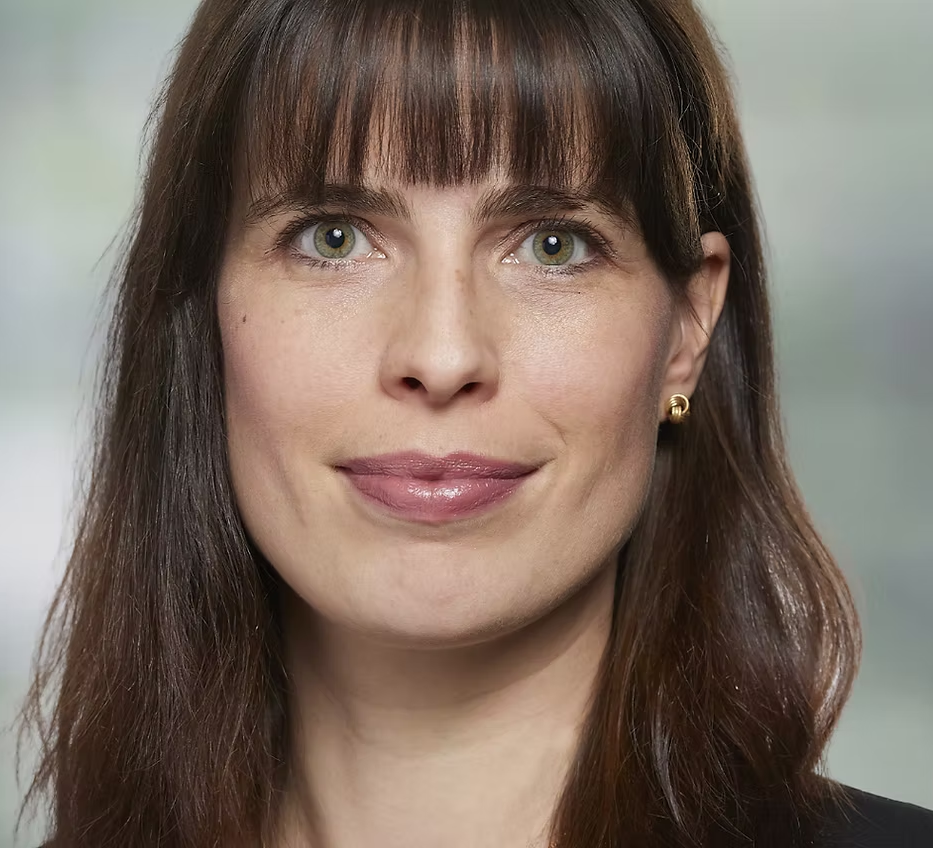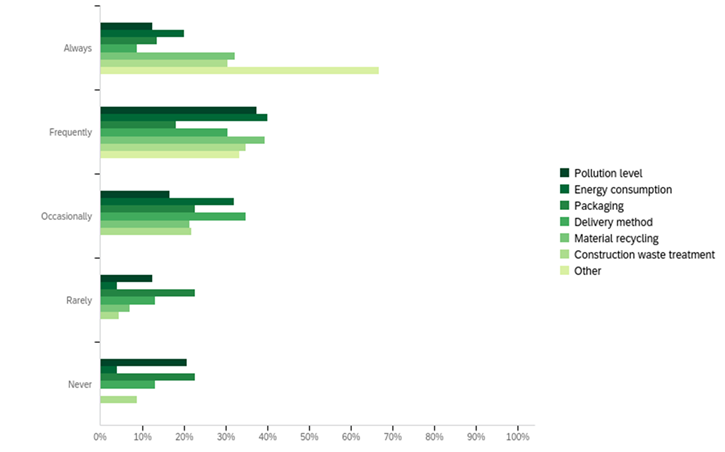Research - 12.09.2025 - 10:30
Most governments are increasingly expected to buy green products and services to promote environmental sustainability and reduce their carbon footprint. In 2021, the revised Swiss Federal Public Procurement Act entered into force, setting the new goal for public authorities to buy goods and services in an “economically, ecologically and socially sustainable manner”. This practice, known as Green Public Procurement (GPP), uses a government's purchasing power to drive the market towards more sustainable options, fostering innovation, creating green industries, and achieving broader environmental policy goals. But some countries are able to accomplish these goals better than others. With her new project Assistant Professor and legal expert Désirée Klingler dove into this topic and analysed Switzerland’s green procurement practice.

What was the name of your project?
The book Green Public Procurement: Lessons from the Fields was part of the research project “Contract Public et Dévelopment Durable” (CPEDD) under the lead of French universities. I was asked to participate in the project to collect data on the sustainable procurement practices in Switzerland. My colleagues looked at other countries, including Canada, France, Italy, Portugal, and the Netherlands.
Why did you focus on this subject area? What were you hoping to learn?
In many countries, including Switzerland, new laws have been adopted to encourage authorities to buy green. But the law is only one side of the coin. Whether authorities are actually buying greener, is a big unknown. My survey is the first study in Switzerland that collects data on green procurement practice, asking a broad variety of federal, regional and local buyers.
Overall, how does Switzerland compare to leading countries in this area such as Sweden and the Netherlands?
Based on the survey results, Switzerland leads in the practical implementation of GPP, with the Netherlands close behind. The implementation in Canada, France, and Portugal seems slower and more fragmented. Also, over 70% of Swiss specialist offices favour mandatory monitoring of environmental criteria – more emphatically than in Portugal or Canada, suggesting Switzerland is further along in recognizing enforcement.
But we need to keep in mind that surveys reflect people’s perception and that there might be a selection bias. Another challenge is that most countries measure green procurement based on what was advertised and not whether the end product, like a building, was sustainable at completion. This means that also governments must be aware of the risk of greenwashing.
How does the Swiss government define “green”?
This is a tricky question, not only in Switzerland, but all countries. “Green procurement” is not a legal term, but a term of art. The revised Public Procurement Act asks the government to spend public resources in an “ecologically sustainable” manner. So “green” can be understood as the criteria and technical properties of a product that help protect the environment and ecosystem and take into account the product’s life cycle costs. Examples of “green” products are textiles with FSC-label, recyclable concrete, buildings with an energy concept like Minergie or IT hardware with the “Blue Angel”. Suppliers can be “green”, too. An important standard is ISO 14001 that certifies organizations with an effective Environmental Management System.
Is this definition of “green” standardised across all government departments? Is there conflict here?
Because there is no legal definition or an exhaustive list of what counts as “green”, there is great variance between departments, but also between regional and local offices. Similar like the EU practical guide on GPP Criteria that defines evidence (like eco-labels and standards) for different product categories, the Swiss government has issued guidelines on green procurement and established a knowledge platform with Factsheets on what standards and eco-labels can be used to buy sustainable goods and services. But since those instruments are not binding, the different departments and regional buyers can apply their own definition and tools.
What does Switzerland do well?
To promote GPP, Switzerland invests into training and guidelines: Around 60% of respondents participated in trainings and profited from practical tools. Nearly 90% of respondents use eco-labels, standards and certificates, especially for buildings. Swiss officials also report that they can frequently verify environmental information in offers – a common obstacle in green procurement, and that 50% use environmental clauses in contracts that they monitor and verify. The main drivers behind GPP implementation are political pressure and personal beliefs.

This book also focuses on other countries such as Canada, France and the Netherlands. Is there anything we can learn from the way they approach public procurement?
One major difference from the Netherlands is that the framework and GPP implementation is perceived as clear and uniform, due to long-standing EU-driven policies. In Switzerland, however, the revised law is new (2021) and implementation remains inconsistent, especially at the local level. This example shows the power of consistent practice and clear guidance that could help promote Switzerland’s GPP uptake.
In what areas can Switzerland improve green public procurement?
What gets measured, gets managed. Having reliable data is the first step – the main goal of this study. Only when we have reliable data across different agencies and product categories, we know where we stand, what the obstacles are and where we need to improve. Another important aspect is the mindset of procurement officials. The legal basis to buy green is here, but whether officials make us of it, is driven by their personal beliefs.
According to the survey, the two main obstacles to GPP uptake in Switzerland are missing expertise and higher administrative costs. Training – especially at the local level – but also targeted use of experts can help increase expertise and reduce risk aversion. More expertise can also help to save time and costs. Although outsourcing is a sensitive topic in public management, knowing all standards, label and technical properties of sustainable products is nearly impossible, especially for local officials. So, involving environmental experts can be of great help.
The book: Green Public Procurement: Lessons from the Fields.
Désirée Klingler is an Assistant Professor of Public Law with a special focus on Sustainable and Smart City Governance.
Image: Adobe Stock / Pakin
More articles from the same category
This could also be of interest to you
